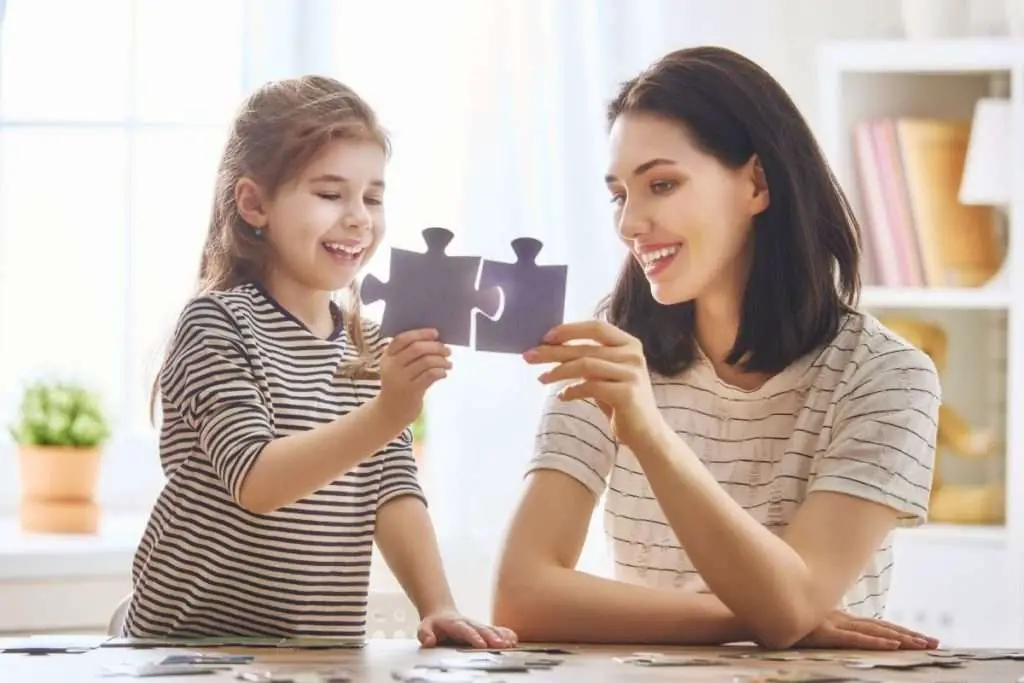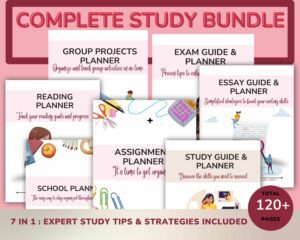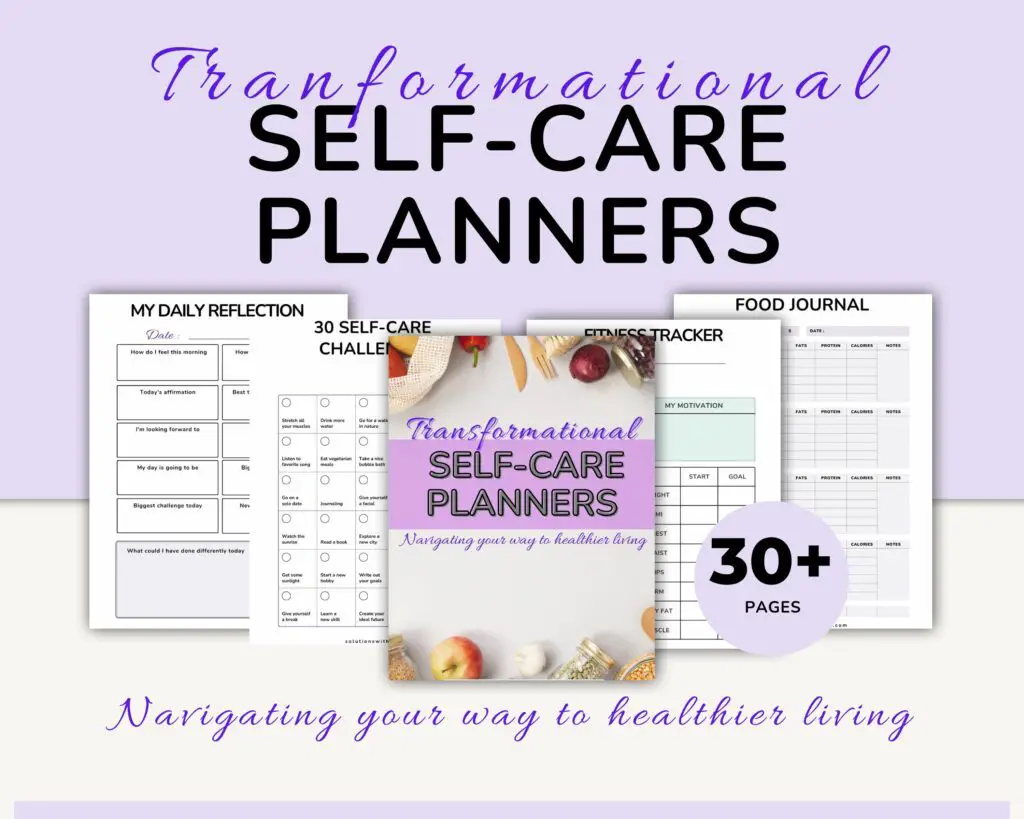Don’t fall victim to those aging brain cells that cause cognitive decline. Puzzles are a great way to stimulate the mind and improve your memory.
Puzzles are good for the brain because they help with memory, reasoning, creativity and cognition. And, despite the health benefits, puzzles are a fun, educational way for people of all ages to socialize and get a welcome distraction.
However, many persons still think that puzzles are just for kids.
Fortunately, the health benefits of puzzles have been studied extensively. And, the findings are both intriguing and perplexing.
That’s why I have compiled a list of 11 reasons why puzzles can improve your personal health and wellness. Let’s get started!
- Don't fall victim to those aging brain cells that cause cognitive decline. Puzzles are a great way to stimulate the mind and improve your memory.
- Why are puzzles good for the brain?
- 1.Puzzles are a great way to keep your mind sharp
- 2.Puzzles boost creativity and artistic skills
- 3.Puzzling can improve hand-eye coordination
- 4.Puzzles increase the mind's ability to retain information
- 5.Puzzles promote abstract thinking
- 6.Puzzles help with neurological diseases
- 7.Puzzles can reduce stress levels, anxiety and depression
- 8.Puzzles improve collaboration, concentration and problem-solving skills
- 9.Puzzles make people happy
- 10.Puzzles increase your spatial intelligence
- 11.Solving puzzles improves brain cell communication
- Final words on why puzzles are good for the brain
- What is gaming addiction?
- How can I improve my intellectual health?
Want the perfect academic resource for your studies?
This all-in-one resource is perfect for any person who wants to take charge of their academic journey.
The bundle includes a total of 7 printables, each equipped with multiple worksheets, trackers, and expert advice.
Why are puzzles good for the brain?
Here’s a list of the reasons why puzzles are good for the brain.
Puzzles:
- Keep your brain sharp.
- Boost creativity and artistic skills.
- Improve hand-eye coordination.
- Increase the mind’s ability to retain information.
- Promote abstract thinking.
- Help with neurological diseases.
- Reduce stress levels, anxiety and depression.
- Improve collaboration, concentration and problem-solving.
- Boost happiness.
- Increase spatial intelligence.
- Improves brain cell communication.
Now, let’s explore these amazing benefits of puzzles in greater detail.
Here’s a 1500 pc wooden Puzzle Plateau, complete with Puzzle Storage System. It’s a gorgeous, fun way to challenge yourself and boost your cognition.
1.Puzzles are a great way to keep your mind sharp
Puzzles stimulate brain activity and can increase your ability to focus. In fact, they can also help you fight off age-related cognitive decline and memory loss.
To maximize the benefits, the key is to choose puzzles that will challenge your mind without being so difficult that they frustrate you.
For instance, a study involving over 19,000 participants showed that adults over the age of 50 who played crossword and jigsaw puzzles had much better brain function. More specifically, the outcomes assessed included focus, attention, memory and information processing (Brooker, 2019).
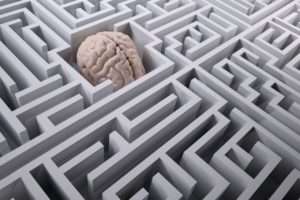
"Life is like a puzzle. Only if you fit the pieces to the right places, you will see the beauty of it." - Dave Nahar
2.Puzzles boost creativity and artistic skills
Puzzles are wonderful for both children and adults because they promote creativity and will help you to explore a variety of art forms.
Actually, adults who puzzle can learn underlying concepts behind different types of art. In addition, puzzles are especially beneficial in stimulating creativity and imagination.
Fortunately, numerous studies have shown that creativity is linked to increased positive emotions which substantially benefit mental and psychological health.
Also, be sure to check out my article about the health benefits of debate and discussion
3.Puzzling can improve hand-eye coordination
The act of manipulating the puzzle pieces can help develop dexterity, hand-eye coordination and improve other motor skills.
Moreover, puzzles as a form of physical or occupational therapy can assist people of all ages who are unable to perform certain tasks including activities that involve grasping or fine motor skills.
"When it comes to your health goal, no matter what it is, your diet is part of the largest jigsaw puzzle called "Lifestyle".-Shilpa Sheltty Kundra
4.Puzzles increase the mind’s ability to retain information
People are often surprised to hear that puzzles can help with memorization. In fact, puzzles even help you retain details about complex figures.
Essentially, since puzzles are engaging, they facilitate active participation which help people remember more easily. Moreover, puzzles stimulate the grey matter of the brain which may help prevent brain atrophies.
Notedly, the grey matter is associated with memory, learning and motor function.
Further, many puzzles require you to read the clues which will eventually teach you new concepts or words that might have been completely foreign to you.
One study involving 68 students showed that crossword puzzles helped students improve their vocabulary. In fact, the results also demonstrated an improvement in attitude and motivation towards learning among the participants (Drawiwatnakul, 2013).
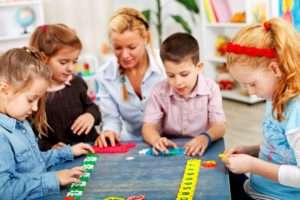
"People are like puzzles, they take time and patience to understand." - Kushand Wizdom
Use this link to discover 19 easy ways to improve your brain power.
5.Puzzles promote abstract thinking
Abstract reasoning is the ability to take something that is complex and solve it by breaking it down into smaller components.
As a matter of fact, this type of thinking is valuable in many academic and professional fields.
The classic example of abstract reasoning is a jigsaw puzzle, because the outcome itself may not be visible but the components are.
In this case, the key is not necessarily the complexity; but the challenge. Essentially, engaging in activities that are intellectually engaging require focus and patience which help prevent cognitive decline.
"Missing pieces do more than complete the puzzle, they fill in an empty place." - Luanne Rice
6.Puzzles help with neurological diseases
Puzzles can be a great way to help persons with mental and neurological diseases.
Actually, puzzles have been reported to help with Alzheimer’s disease, autism, attention-deficit disorder (ADD), depression, dementia, dyslexia and schizophrenia.
Notedly, studies have shown that puzzles were able to increase the focus levels in children with ADHD (attention deficit hyperactivity disorder) by engaging with brain teasers in low distraction environments.
7.Puzzles can reduce stress levels, anxiety and depression
Puzzles have been proven to aid in reducing stress, anxiety and depressive symptoms. In fact, the act of concentrating on puzzles simulates the meditation process and is a great way to distract yourself from life’s stresses.
Additionally, solving a puzzle is considered to be a good way to increase self-esteem and confidence which is great for your mental health.
This is due to the sense of accomplishment you’ll feel after completing a puzzling, especially if it was a bit challenging.
According to research, jigsaw puzzling improves cognition in two ways. Firstly, the cognitive demands increase brain reserve and secondly, the regulation of emotions can minimize chronic stress. On a long-term basis, this improves dementia and cognitive aging (Fissler et al., 2018).

"The nice thing about doing a crossword puzzle is, you know there is a solution." - Stephen Sondheim
Discover 16 tips for coping with difficult situations
8.Puzzles improve collaboration, concentration and problem-solving skills
Puzzles stimulate the parts of the brain responsible for divergent (uses imagination and ideas) and convergent (uses facts and logics) thinking, also known as “thinking outside the box.”
Fortunately, this type of thinking is crucial for solving challenging problems, writing and finding creative solutions.
Actually, most puzzles work by forcing you to look at a problem in multiple ways and to shift your focus and figure out how two seemingly unrelated concepts are connected.
9.Puzzles make people happy
Puzzles are fun and are a great way to encourage social interaction. As such, puzzles can decrease negative emotions and increase life satisfaction.
No wonder the demand and use of jigsaw puzzles surged during the pandemic!
In fact, since puzzles are positively stimulating, they have been shown to elevate the level of dopamine in the brain – which is linked to happiness.
It appears that adults with a preference for solving puzzles may have a significantly better emotional state than people without such preferences.
Additionally, brain teasing tasks which require you to use your focus, memory, and problem-solving skills tend to improve emotional intelligence.
Read about psychological ideas for self-care that will transform your life.

"There are no extra pieces in the universe. Everyone is here because he or she has a place to fill, and every piece most fit itself into the big jigsaw puzzle." - Deepak Chopra
10.Puzzles increase your spatial intelligence
Solving puzzles, particularly on a long term basis, will improve your spatial abilities and working memory because they require you to visualize, rotate and orient the pieces in different dimensions and judge distances between objects.
Notedly, spatial intelligence helps with navigation, STEM subjects and abstract/innovative thinking.
11.Solving puzzles improves brain cell communication
Finally, solving puzzles boosts the flow of information in your brain, which makes it work faster.
Actually, puzzles can make you smarter by stimulating neurons to form new connections or reinforcing existing ones, thus improving the speed at which your brain cells communicate with each other.
In summary, puzzles improve focus, cognition, concentration, memory, creativity, happiness, hand-eye coordination, problem-solving skills, spatial intelligence, abstract thinking, and helps with neurological diseases and mental health disorders etc. That’s more than enough reasons for you to really consider puzzling more often.
"The art of simplicity is a puzzle of complexity." - Douglas Horton
Final words on why puzzles are good for the brain
Puzzles provide a mental challenge that stimulates the brain in new ways that are important to your health and wellbeing.
In fact, the benefits of puzzling extend to people of all ages. As such, it’s time that you start incorporating some puzzle-solving into your daily life! After all, you only get one brain so be sure to treat it right.
Discover how knowledge and action are vital for wellness.
Comment or share this blog post with friends who might also benefit from these strategies today.
Don’t forget to take a quick quiz to assess your health knowledge!
Recommended puzzle to boost your brain power
READY TO TRANSFORM YOUR SELF-CARE ROUTINE?
It’s time to make self-care a delight instead of a chore.
This incredible free resource comes packed with features for tracking everything from your daily water intake to how many steps you take.
Related Posts
What is gaming addiction?
Gaming addiction is defined as a pattern of persistent or recurrent gaming behavior that results in significant adverse consequences to a gamer or those around him/her.
Notably, the symptoms that characterize the disorder, as detailed by the American Psychiatric Association (APA) include impaired control over gaming (continued excessive use despite negative consequences); repetitive patterns of gaming behavior; and continuous or periodic engagement in gaming behavior.
How can I improve my intellectual health?
Intellectual wellness is the ability to think, learn and create. Essentially, it allows for creativity and innovation.
Actually, some tips on how to increase your intellectual wellness include reading, writing, listening to podcasts or audiobooks, playing games, solving puzzles such as crosswords and jigsaw puzzles.
In addition, a healthy diet and getting a good night’s sleep are also recommended.Read more articles on intellectual wellness.
References:
Brooker H, Wesnes KA, Ballard C, Hampshire A, Aarsland D, Khan Z, Stenton R, Megalogeni M, Corbett A. The relationship between the frequency of number-puzzle use and baseline cognitive function in a large online sample of adults aged 50 and over. Int J Geriatr Psychiatry. 2019 Jul;34(7):932-940.
Fissler, P., Küster, O. C., Laptinskaya, D., Loy, L. S., von Arnim, C., & Kolassa, I. T. (2018). Jigsaw Puzzling Taps Multiple Cognitive Abilities and Is a Potential Protective Factor for Cognitive Aging. Frontiers in aging neuroscience, 10, 299.
(2) Fissler, P., Küster, O. C., Loy, L. S., Laptinskaya, D., Rosenfelder, M. J., von Arnim, C., & Kolassa, I. T. (2017). Jigsaw Puzzles As Cognitive Enrichment (PACE) – the effect of solving jigsaw puzzles on global visuospatial cognition in adults 50 years of age and older: study protocol for a randomized controlled trial. Trials, 18(1), 415.
Orawiwatnakul, W.. (2013). Crossword Puzzles as a Learning Tool for Vocabulary Development. Electronic Journal of Research in Educational Psychology. 11. 413-428. 10.14204/ejrep.30.1218
